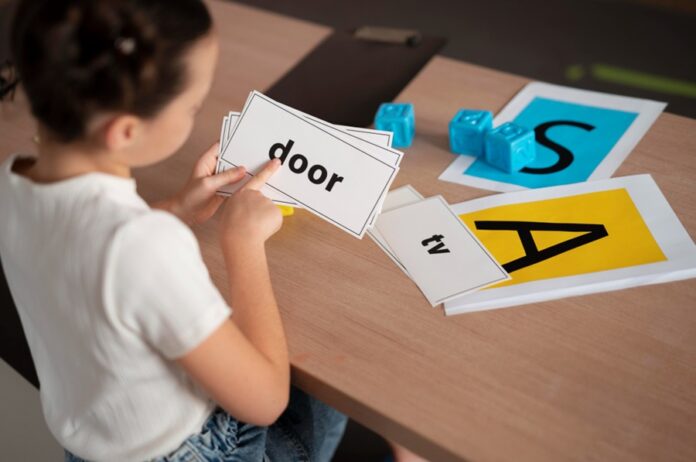Is your child struggling to understand new words in books? It is familiar for beginner readers and for you to feel discouraged.
You must help your child build a strong vocabulary, which includes comprehension reading, learning new words, and communicating with you as part of their routine.
Thus, to help your child discover a love for new words, here are some essential activities that will improve their vocabulary effectively in their comfort space.
Effective Ways To Build Your Child’s Vocabulary
Building a strong vocabulary is a fascinating part of language development. This typically begins early in a child’s life.
So, to help your child in preschool expand their vocabulary, here are some essential tips you can employ.
1. Introduce New Words
If your child learns a new noun, help them find a picture of it, whether online or in a book.
So, it is an adjective; start thinking of things that can be described using the word, like diligent student or lunch. If it is an emotion, highlight it with a facial expression or a hand gesture.
Thus, acting out verbs will be a fun activity. You can try prowling around the home and visiting the grocery store.
2. Enroll For Vocabulary Classes
A robust vocabulary helps improve all areas of communication, from listening, reading, speaking, and writing.
Building the correct vocabulary is essential for the child’s success regarding school achievements.
Enrolling in enrichment classes is essential to ensuring they obtain this. However, the professionals will guide your child in developing the ability to create valuable and better ideologies.
Thus, let your child develop extensive vocabulary with english enrichment singapore as they have the key to knowledge. Here, the experts will analyze your child’s ability and help them grow.
3. Constantly Communicate
Stimulating conversations between parents and children is critical in expanding a child’s vocabulary.
If you are still deciding what to talk about, simply share your day while they are at school. You can further describe your daily tasks at work or home or reminisce about family vacations and experiences.
Moreover, when you are engaged in exploring a museum or shopping at the supermarket, make it a point to talk about the surroundings and the things you encounter. Look for new words on signs and labels and incorporate them into your conversation.
Thus, this will engage them and make communication more descriptive, ultimately improving your child’s vocabulary naturally.
4. Play With Rhymes
Playing with rhymes and words can introduce children to new word structures and sounds. Here, they can read rhyming books during their playtime.
Therefore, reading rhyming books can fill them with playful words, sing songs, and create short stories.
For instance, you can create a story about a grumpy giraffe wearing polka-printed socks. This exposure to different rhymes and sounds will assist your child in developing phonemic awareness, which is crucial for vocabulary development.
5. Create Stories Together
Storytelling is a powerful tool for language development.
You can start by taking turns and adding sentences to a collaborative story. Begin with a prompt like “once upon a time…” and see where your imagination takes you.
As your vocabulary grows, encourage them to create their own stories using newly learned words. This will eventually help them practice using words in context and strengthen their narrative skills.
6. Read Aloud
Reading out loud is effective and significant for bonding at any age. This is effective for infants till your child is a teenager.
Therefore, you can make a daily read-aloud decision as a part of your reading routine with your toddler. You only need to select a book with vocabulary slightly above your child’s proficiency.
As a result, this exposure to new words is safe and will help your child develop a strong vocabulary.
In addition, you need to pause during read-aloud so that you can discuss unfamiliar and new words. Similarly, explain to them and motivate your child to guess the meaning based on the surrounding illustrations.
Wrapping Up
Adding the fun activities mentioned above to your daily routine can help your child develop a strong vocabulary.
This will help them in their academics and foster it for their entire life.
However, surround your child with print-rich surroundings and fill them with books catering to their interest. You can also set up a mini library in their bedroom and allow them to explore different topics and genres.
So, help your child channel a love for learning and reading by themselves.
